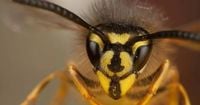As summer unfolds across the UK in 2025, a familiar and unwelcome guest is making a pronounced return: wasps. After a few quieter seasons, these buzzing insects are back in larger numbers, stirring up a mix of irritation and concern among the public. From garden picnics to outdoor gatherings, wasps are proving to be a persistent challenge, prompting increased calls to pest control experts and renewed interest in natural deterrent methods.
John Horsley, a member of the British Pest Control Association, recently experienced the wasp invasion firsthand while gardening. "That stung me a few times in the back," he recounts. "It wasn't a pleasant experience." His encounter is emblematic of a broader uptick in wasp-related disturbances this summer. Notably, large nests have been appearing earlier in the season than usual, signaling a particularly strong wasp year.
Wasps are currently busy raising their young, but as the season progresses, they tend to congregate in public areas, drawn by sugary snacks before they eventually die off. This behavior often leads to the all-too-familiar scene of wasps swarming around picnic tables and beer gardens, much to the chagrin of outdoor enthusiasts.
What’s behind this surge? Experts point to the weather. The UK has experienced its warmest spring in over 50 years, according to the Met Office, a sharp contrast to last year's coolest summer in nine years. John Horsley explains, "We don't have plagues of insects, but it seems that every few years, wasps will have a strong year and that commonly coincides with particular weather patterns – this year it's been very warm and very dry – it's been a very good year for them."
Supporting this observation, Professor Seirian Sumner, a leading wasp expert at University College London, shares a cautiously optimistic prediction: "All the signs are, based on the weather and other insect populations, it is going to be a good year for wasps." Although scientific data on wasp numbers will be released later, the anecdotal evidence aligns with the current weather conditions and insect activity.
Understanding the wasps’ role in the ecosystem helps put their resurgence into perspective. The UK is home to about 9,000 species of wasps, most of which are solitary and pose little nuisance to humans. The social wasps—like the common wasp (Vespula vulgaris)—are the ones most often encountered and sometimes disliked. In fact, a 2021 YouGov poll ranked wasps as the second most disliked insect in the UK, just behind spiders.
Yet, as Professor Sumner emphasizes, wasps are far from merely pests. "They are really important parts of the ecosystem – they're apex predators," she explains. "Take a top predator out of any system – like the lion out of Serengeti – it has knock-on effects in the prey populations that will then go unchecked by their predator." Wasps act as natural pest controllers, helping to keep other insect populations in balance across gardens, wild landscapes, and farms.
In fact, while many insect populations worldwide are declining due to factors like intensive agriculture, pesticide use, and climate change, the common wasp population has remained stable over the past century. Other species, such as the European hornet, are even expanding their range northward in the UK, while sightings of the invasive Asian or yellow-legged hornet have increased since its arrival in 2016.
Meanwhile, after a disappointing 2024 for butterflies, many common species like the Large White are flourishing this summer, alongside ladybirds, which seem to be thriving in the warmer temperatures. This mixed picture highlights the complex and often surprising ways insect populations respond to environmental changes.
For those looking to enjoy the summer outdoors without constant wasp interruptions, experts offer practical advice. Nikki Banfield from the insect charity Buglife suggests leaving a small cap of jam or orange juice a short distance from picnic areas to distract wasps. This simple trick can help keep them away from your food and drinks.
James Higgins of Grass247 recommends natural deterrents to repel wasps without harming them. "Planting strong scented plants is a great method when it comes to getting rid of wasps naturally," he says. Plants like lavender, geranium, eucalyptus, rosemary, sage, and mint emit scents that wasps find unpleasant. Placing these herbs in pots near windows can also help prevent wasps from accidentally flying indoors.
Higgins also suggests a homemade wasp repellent spray made from water, washing-up liquid, and essential oils such as peppermint, lavender, or clove. "Lightly spritz this across your garden, focusing on any established wasp nests or places you've seen them frequently," he advises. Keeping outdoor spaces clean is equally important, as wasps are attracted to protein and sugary food waste. Ensuring bins are closed, clean, and positioned away from windows can reduce wasp visits.
It's important to remember that wasps usually sting only when they feel threatened. Experts urge people to stay calm and avoid swatting or flailing, which can provoke aggression. John Horsley cautions, "Don't disturb them. Try and stay away from them where possible, and, if it needs to be treated then speak to a professional." Wasp stings can pose serious health risks, including anaphylactic shock in sensitive individuals, so professional help is advisable if nests become problematic.
So, while wasps may be back in force this summer, their presence is a reminder of the delicate balance in nature. By understanding their behavior and ecological importance, and by adopting simple, natural deterrents, people can coexist with these buzzing neighbors more peacefully. After all, a summer without wasps might be quieter, but it wouldn’t be quite as alive.

